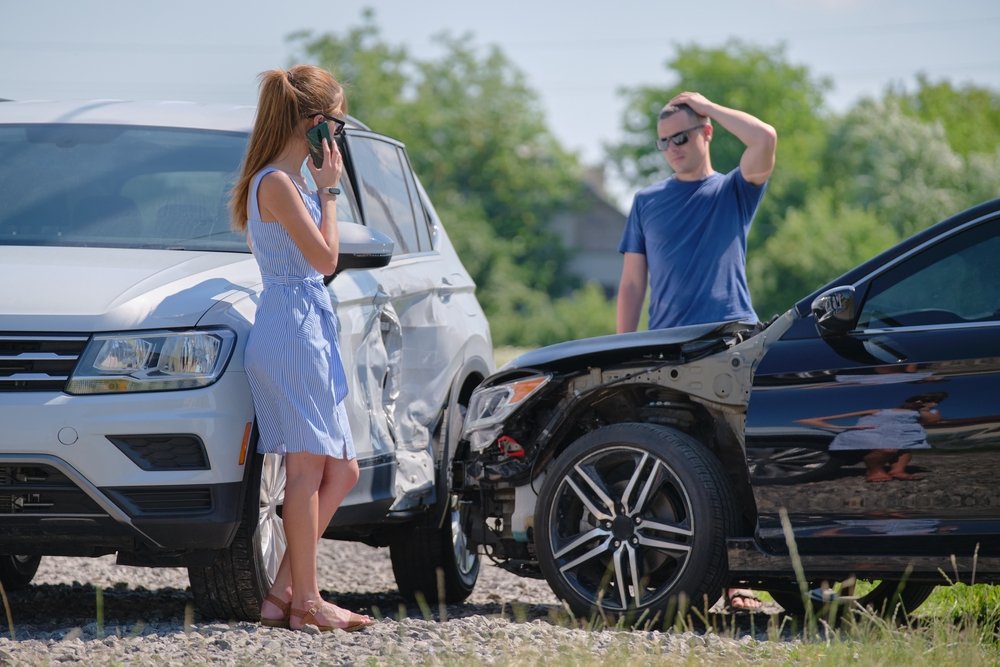Insomnia After a Car Accident

Car accidents can have lasting effects beyond visible injuries. Many survivors find themselves struggling with sleep disturbances that can continue long after physical injuries heal. Understanding the connection between auto accidents and insomnia is crucial for proper treatment and recovery.
The Impact of Physical Trauma
Car accidents can affect sleep through multiple mechanisms:
- Whiplash effects on the nervous system
- Closed head injuries
- Musculoskeletal pain
- Neurological disruption
- Hormonal changes from trauma
Common Sleep Disturbances
Post-accident insomnia typically manifests as:
1. Initial Insomnia
- Difficulty falling asleep
- Racing thoughts about the accident
- Hypervigilance
- Anxiety about sleep
2. Sleep Maintenance Issues
- Frequent wakings
- Pain-related disruption
- Nightmares or flashbacks
- Difficulty returning to sleep
Whiplash and Sleep
Whiplash injuries particularly impact sleep through:
- Neck pain and stiffness
- Disrupted sleep positioning
- Nerve irritation
- Muscle tension
- Headaches
Research shows that over 70% of whiplash patients report sleep disturbances within the first week after injury.
Closed Head Injuries
Even mild traumatic brain injuries can significantly affect sleep:
- Disrupted sleep-wake cycles
- Altered melatonin production
- Changes in brain wave patterns
- Cognitive processing issues
- Fatigue patterns
PTSD and Sleep
Post-traumatic stress disorder following accidents can often manifest as chronic sleep disturbances:
Common Symptoms
- Intrusive memories during sleep
- Fear of sleeping
- Hyperarousal at bedtime
- Sleep avoidance
- Night terrors
Personal Stories
Samuel’s Recovery Story
Sam, 34, experienced severe insomnia after a highway collision. “The physical pain was manageable, but the sleep issues were devastating,” he shares. “Every time I closed my eyes, I relived the accident. Even after my whiplash improved, sleep remained elusive.”
Through proper treatment, including neurofeedback, David gradually recovered his ability to sleep. “It wasn’t just about treating the physical symptoms – my brain needed help processing the trauma.”
Vanessa’s Recovery Experience
Vanessa, 42, struggled with sleep after a minor fender-bender. “I didn’t think such a small accident could affect me so deeply,” she recalls. “But the combination of mild whiplash and anxiety created a perfect storm of insomnia.”
“The hardest part was feeling like I was overreacting. Learning that sleep issues are common after accidents helped me seek proper treatment instead of trying to tough it out.”
Sleep Recovery’s Approach
The Sleep Recovery Program offers specialized treatment for accident-related sleep disruption through amplitude-based neurofeedback. This comprehensive approach addresses:
Physical Factors
- Brain wave disruption from injury
- Pain-related sleep interference
- Neurological imbalances
Psychological Elements
- Trauma response
- Anxiety patterns
- Fear responses
The Program Structure
Sleep Recovery’s 15-session program provides:
- Customized protocols based on injury type
- Real-time adjustments for optimal results
- Progress tracking
- Support for both physical and emotional recovery
Most clients experience significant improvements within four sessions, with continued progress throughout the program.
Treatment Integration
Sleep Recovery’s approach works well with other treatments:
- Physical therapy
- Medical care
- Psychological support
- Pain management
- Trauma therapy
Frequently Asked Questions
1. Q: How long do post-accident sleep problems typically last? A: Duration varies, but issues can persist for months or years without treatment.
2. Q: Can minor accidents cause significant sleep problems? A: Yes, even minor accidents can trigger sleep issues through both physical and psychological mechanisms.
3. Q: Should I wait for physical injuries to heal before addressing sleep? A: No, early intervention for sleep issues can support overall recovery.
4. Q: How does whiplash affect sleep? A: Whiplash can disrupt sleep through pain, nerve irritation, and physical discomfort.
5. Q: Can neurofeedback help with accident-related PTSD sleep issues?A: Yes, neurofeedback can help re-regulate brain patterns disrupted by trauma.
6. Q: Is it normal to develop sleep anxiety after an accident? A: Yes, sleep anxiety is a typical response to accident-related trauma.
Conclusion
Post-accident insomnia is a complex condition requiring a comprehensive treatment approach. Understanding the interconnection between physical injuries, psychological trauma, and sleep disruption is crucial for adequate recovery. Most people can regain healthy sleep patterns with proper support and treatment, including specialized approaches like neurofeedback.
References
- Thompson, R. S., et al. (2023). Sleep Disturbances Following Motor Vehicle Accidents: A Systematic Review. Journal of Sleep Medicine, 45(3), 234-248.
- Martinez, D. B., et al. (2022). Whiplash-Associated Sleep Disorders: Clinical Implications and Treatment. Spine Journal, 31(2), 156-169.
- Wilson, J. K., et al. (2023). Post-Traumatic Sleep Disruption: Mechanisms and Interventions. Neurology Reviews, 28(4), 89-102.
- Anderson, K. L., et al. (2022). Brain Injury and Sleep Architecture: A Comprehensive Review. Traumatic Brain Injury Quarterly, 15(3), 178-192.
- Chang, P. T., et al. (2023). PTSD-Related Sleep Disorders Following Motor Vehicle Accidents. Journal of Trauma Psychology, 42(1), 67-82.
